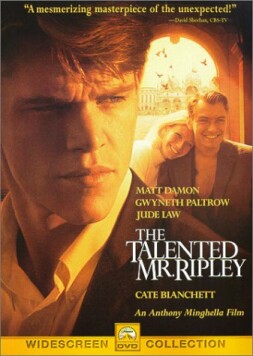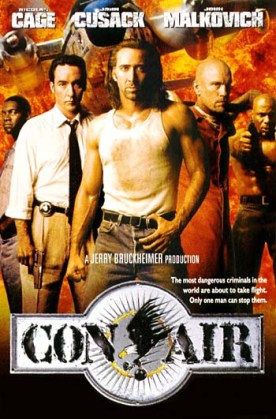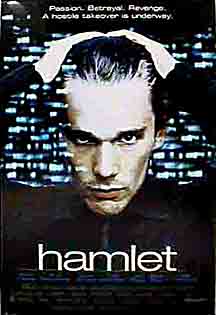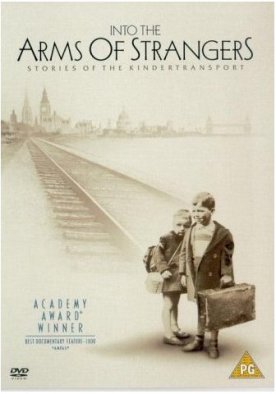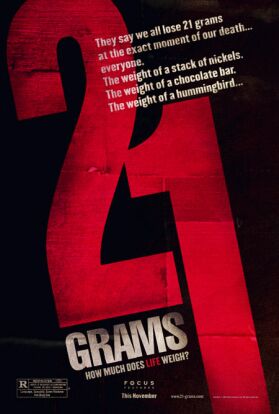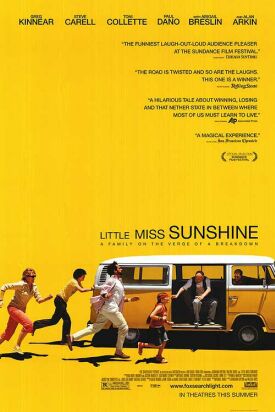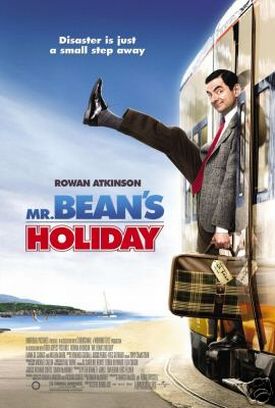Talented Mr. Ripley, The
As I watched Anthony Minghella’s adaptation of Patricia Highsmith’s novel,
The Talented Mr. Ripley, I kept asking myself why this movie was being
made. The decrepitude of its subject matter is obvious from its very first
scenes when we see the eponymous Mr Ripley (Matt Damon) accompanying a lieder
singer at a private recital for obviously very rich people in New York (in a
song, by the way, which was written especially for the film by its music director, Gabriel Yared). This scene is
immediately followed by another in which we see the accompanist working as a men’s room attendant. Huh?
Nowadays, this guy would have had a scholarship to Princeton (if not Juilliard)
and prospects as bright or brighter than those of Dickie Greenleaf (Jude Law),
the rich wastrel and Princeton grad whose life he covets.
It’s not, in other words, that a downtrodden working class genius might not
have felt the justified envy (as it strikes us) of an arrogant but vacuous
playboy in the late 1950s, when the film is set. It could have happened. But
asking an audience at the turn of the century to enter sympathetically into such
a story is like asking them to do the same with one about dueling.
Interestingly, the film includes a stage duel, that from Tchaikovsky’s Eugene
Onegin which Ripley sees at the opera, supposedly in Rome but actually in
Naples. It is not long after he, like Onegin, has murdered a friend, and we see
him weeping at the memory of what he has done when he sees it done on stage. Of
course his tears are merely sentimental. He has no intention of giving up what
he has gained by the murder, and in fact will commit more murders in order to
keep it.
Could it be that Minghella is making the amazingly subtle point that our
self-identification with Ripley is similarly sentimental? That he has dredged up
this anachronism of a situation in order to show us how we romanticize
characters like Ripley — bright, talented but held back by poverty and class
prejudice — long after they have become all but extinct in the real world?
In this case, Ripley would be to us what Onegin is to Ripley, namely a bit of
fossilized sentiment, sanitized and preserved in an elegant and “artistic” form
for the benefit of those who wish to proclaim a certain social standing by
affecting to admire it at a safe distance.
I wish I could believe it, but every indication is that Minghella is engaging
in just such romanticization himself. What he is romanticizing, however, is not
ambitious and downtrodden poverty but gay self-pity. The fires of artistic
energy, cold and dead when it comes to the victims of class prejudice by a now
all-but-vanished WASP aristocracy, are kindled to new life when the story is
transformed to one of a gay man who must deny what he regards as his true nature
in order to get ahead in the world.
Each of Ripley’s three murders makes it clear in a different way that he sees
life as a stark choice between social success and public exposure as a
homosexual. Although the first is unintentional, more manslaughter than murder,
its immediate motivation is embarrassment and humiliation by the man he loves,
rather than ambition. Thereafter, wealth and social position are just pleasant
by-products of the need, even at the cost of cold-blooded murder, to stay in the
closet.
This theme, true, is also somewhat anachronistic, but it still has a very
powerful resonance among gays, whose sense of irony is also doubtless appealed
to by the disguised nature of the material. For all the 1950s-vintage stuff
about a class struggle that has long since moved on to other battlefields is
just there as a sop to the cinematic opera-lovers, as it were, who see the thing
as a nice, safe, Merchant-Ivoryish way of claiming intellectual status while
feeling superior about the past. They deserve to have both gays and
conservatives laugh at their self-satisfaction.
Discover more from James Bowman
Subscribe to get the latest posts to your email.

